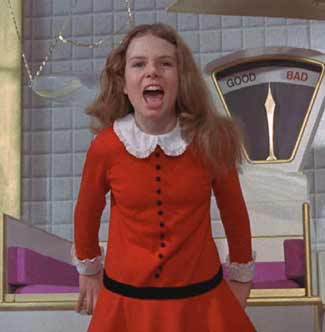Your junior Senator, ladies and gentlemen.
Dismayed by a pair of Supreme Court decisions upholding Obamacare and gay marriage, Republican Ted Cruz presided over a packed Senate hearing Wednesday calling for judicial elections and term limits to rein in what he called “judicial tyranny” and “the abuse of judicial power.”
While term limits or recall elections for Supreme Court justices are considered a distant long-shot, both ideas have gained traction with some legal theorists – and especially with social conservatives who are a key part of Cruz’s strategy to win the 2016 GOP presidential nomination.
As chairman of a Judiciary subcommittee on the federal courts, Cruz took center stage in an afternoon hearing that aired a host of conservative grievances with recent high court decisions that have remade the political landscape on health care and same-sex marriage.
“So long as justices on the Court insist on behaving like politicians, acting like a political body, and making policy decisions instead of following the law, they should not expect to be exempt from the authority of the voters who disagree with their policy decisions,” Cruz said.
The idea of retention elections has been widely panned by critics on the left and right, many of whom fear it would politicize the highest echelon of the judicial branch and expose the justices to unseemly political campaigns.
Delaware U.S. Sen. Christopher Coons, the ranking Democrat on the panel, suggested that the proposal is an overreaction to a pair of court decisions that went against the views of conservatives.
“We cannot decry judicial activism and create a Constitution crisis every time that a big case comes out against us,” Coons said. “The Supreme Court has been a vital arbiter of political interests precisely because it is insulated by the vagaries of politics and political interests.”
Coons and other opponents of Cruz’s plan argued that the current Supreme Court has delivered a string of conservative victories on guns, voting rights and campaign spending limits.
I’ve said it before and I’ll say it again: For a guy that’s supposed to be so freaking smart, Ted Cruz sure says a lot of stupid things. Putting aside the obviously sore-lose-crybaby motivation for this proposal and the fact that the Founders intended Supreme Court justices to be above politics (hence the lifetime appointments; you’d think a self-styled “Constitutional conservative” would have some respect for that), electing Supreme Court justices is an objectively terrible idea. The public will be woefully under-informed about the candidates, who will necessarily be limited in what they can campaign on. All of the conflict-of-interest problems with judicial elections at lower levels will exist times a billion. And speaking of “billion”, the amount of super PAC/special interest money that would flood into these campaigns would be enough to choke a Koch brother. There’s just nothing to recommend this.
Now, some people have suggested perhaps limiting SCOTUS terms to something like 18 years, which would allow for regular turnover while still shielding the Justices from electoral politics. (Which is not to say they’re not themselves political, just that they could continue to make rulings without wondering about their existential future.) I could be persuaded to support such a plan, if I thought there was a chance it could be approved. But Cruz isn’t interested in improving anything other than his own side’s advantage. I suppose that much is smart, but so would be having a plan that had a chance of actually succeeding.


“So long as justices on the Court insist on behaving like politicians, acting like a political body, and making policy decisions instead of following the law, they should not expect to be exempt from the authority of the voters who disagree with their policy decisions,” Cruz said.
Sigh……..